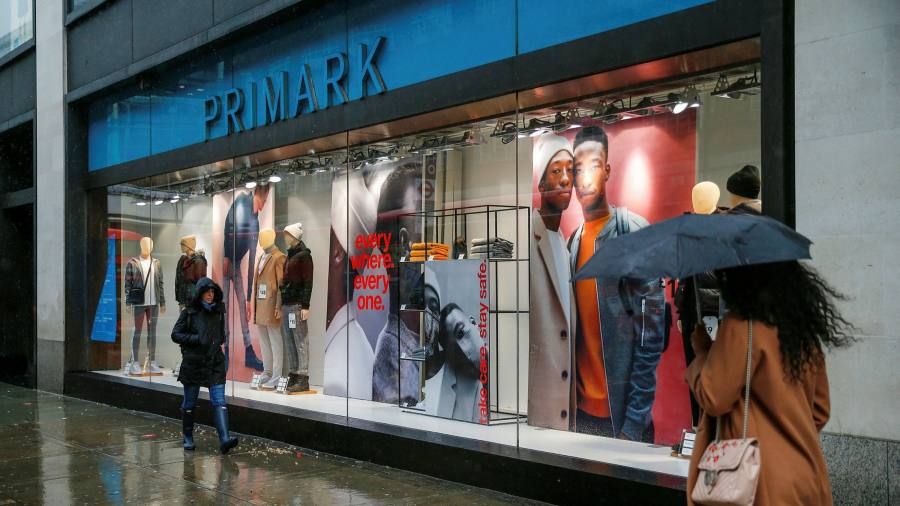[ad_1]
UK inflation unexpectedly dropped in February, dragged down by lower prices for clothing, second-hand cars and toys, but economists still foresaw an increase in the spring as social restrictions are lifted.
Annual consumer price inflation slowed to 0.4 per cent in February from 0.7 per cent the previous month, data from the Office for National Statistics showed on Wednesday.
The reading was well below the rise to 0.8 per cent forecast by economists polled by Reuters, and the decline from January reversed increases in the previous two months.
“A fall in clothing prices helped to ease inflation in February, traditionally a month where we would see these prices rise,†said Jonathan Athow, ONS deputy national statistician. “The impact of the pandemic has disrupted standard seasonal patterns.â€
Clothing prices contracted 5.4 per cent in February compared with the same month last year, the largest fall in more than a decade, accelerating the pace of the decline observed since the autumn. Cheaper clothing largely reflects lower demand, with people stuck at home.

Downward contributions to inflation also came from traditional toys, such as dolls and scooters, meat and confectionery while the growth in second-hand car prices slowed markedly.
Meanwhile, motor fuels and housing and household services pushed prices up, reflecting higher energy costs. There was also a small upward contribution from computer gaming consoles.
Core annual inflation, a measure that excludes volatile and seasonal prices such as energy, food and alcoholic beverages, slowed to 0.9 per cent from 1.4 per cent the previous month — the lowest reading in six months.
But economists noted that the downward pressure on prices was largely linked to Covid-19 restrictions, and was likely to ease as the economy reopened.
Ulas Akincilar, head of trading at the online trading platform Infinox, said: “Another full month of lockdown living successfully squashed inflationary pressure in February.â€
Hannah Audino, economist at PwC, said: “Inflation is likely to pick up this year, as consumers unleash some of their £150bn of excess savings on the economy, combined with potential supply-side distortions due to the pandemic and Brexit.â€
James Smith, economist at investment bank ING, said that none of the factors that pushed down inflation was “likely to last.â€
“From April we’ll also see the headline rate of inflation leap on energy prices,†he added.
The Bank of England expects inflation to rise closer to its target of 2 per cent this year because of higher energy prices and strong demand for services such as pubs and hairdressers as lockdown measures are lifted.
However, in its latest monetary policy announcement this month, the central bank said it did not intend to tighten monetary policy until there was “clear evidence†of significant progress in eliminating spare capacity and reaching the inflation target “sustainablyâ€.
James Sproule, chief economist at Handelsbanken, said that February’s numbers were “clearly not going to raise any inflationary concerns in the Bank of England. If anything, the concern will be that inflation remains some way below its long-term 2 per cent targetâ€.
The ONS warned that inflation calculations were currently subject to greater uncertainty than usual as it was not able to directly collect the prices of almost 70 items, corresponding to 8.3 per cent of the total tracked.
Coronavirus business update

How is coronavirus taking its toll on markets, business, and our everyday lives and workplaces? Stay briefed with our coronavirus newsletter.
[ad_2]
Source link





